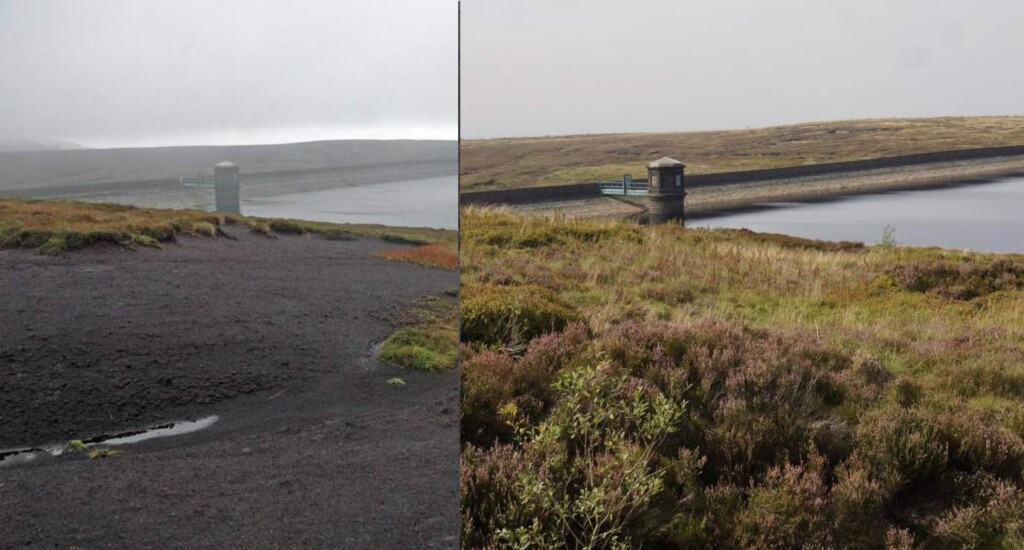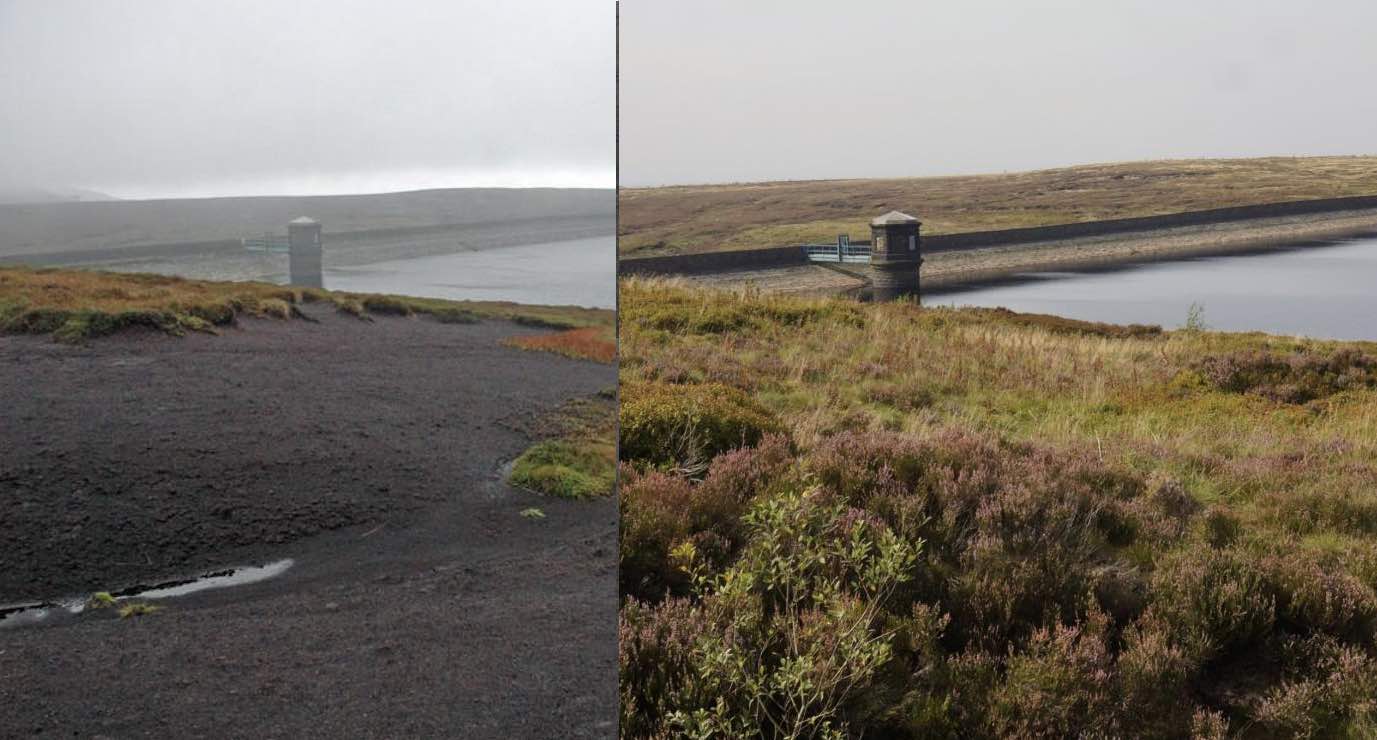
After deciding in 2012 that the Dovestone Reservoir needed serious restoration, volunteers have spent the last decade hand-planting cuttings of moss to improve water quality and filtration.
The hilltop reservoir in Oldham, in Manchester county, was surrounded by bare peat bogs, over which rainwater would fall rapidly and take on a silty brown color. This water then moved into the surrounding streams and gullies and further degraded the riverine qualities.
Additionally, the lack of any ground vegetation meant that flood risk in the surrounding communities was high, as nothing stopped the water from falling down into the reservoir, or down the hillsides onto the roads.
To remedy this, volunteers with the Royal Society for the Protection of Birds, together with United Utilities which owns the land, have worked rain, wind, and sunshine (but mostly rain and wind) for 10 years planting sphagnum moss all around the area which has been experiencing de-vegetation since Neolithic times.
On a rainy, windy Wednesday, the volunteers celebrated planting their one-millionth cutting.
“We are wanting a landscape that sequesters carbon and slows floodwaters, and supports lots of biodiversity, and is somewhere that gives people really nice health and wellbeing benefits,” site manager Kate Hanley told the Oldham Times.
A SWAMP PROTECTED FOREVER: Unprecedented Gift Preserves 8,000 Acres of ‘The Land Between the Rivers’ in Alabama: ‘America’s Amazon’
Hanley explained that all together, the volunteers have donated over 45,000 hours of their time to do the replanting, equivalent to 20,000 labor hours of work.
“We’ve come a really long way on that journey from bare, degraded, peat 10 years ago, to sphagnum-rich, soaking wet, functional blanket bog.”
MORE BRITISH LANDS RESTORED: Farmer Combats Flooding by Returning Creeks to Nature: ‘Wildlife That Has Come is Phenomenal’
Peat and rock dams have been set up to trap water and provide habitat for birds, amphibians, and insects.
“We needed to get it back to something that looked how it used to look, with vegetation that was good for the wildlife, good for the birds, good for the mountain hares, and everything else,” 71-year-old Denzil Broadhurst who has been volunteering for years, told the Times. “It was important to actually try and help to do that work, to improve things.”
KNOW ANYONE Near Oldham? SHARE This Story With Them…




















